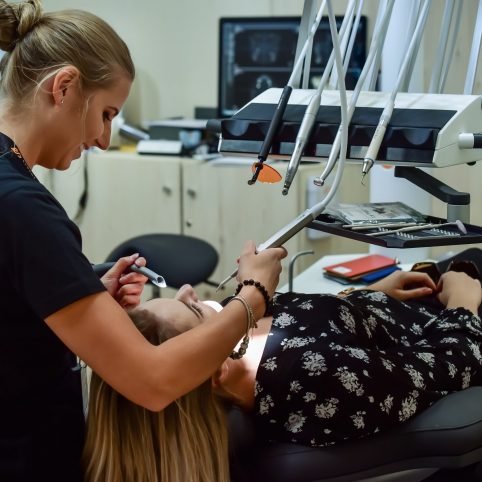Sometimes dental care falls to the bottom of a very busy list of things to do. However, when you have been diagnosed with a bleeding disorder such as haemophilia or von Willebrand’s disease, taking care of your teeth needs to be given high priority. It is important for people with bleeding disorders to take good care of their teeth and gums. Making regular visits to the dentist will reduce the chances of future problems such as extractions or infections which can lead to further complications.
Attending the Dentist
If you have mild haemophilia (30% or greater), it is fine to attend your own dentist for routine care such as check-ups, fillings, scale and polish, root canal, crowns and cosmetic work. You should inform your dentist about your bleeding disorder and advise him/her that further information is available from your Haemophilia Treatment Centre. However, should you need a tooth extraction, some deeper injections, gum surgery or a dental implant, your dentist should contact your haemophilia consultant or nurse for advice as this type of treatment will usually need to be provided in a specialist centre. Your dentist will advise you about how often you need to attend for check-ups and give you information on how to prevent dental problems. Everyone with haemophilia should attend their dentist at least once a year for a check-up.
Should I brush my teeth if it makes my gums bleed?
Gums that bleed after tooth brushing are a sign of early gum disease which is very common and it is important that this does not progress to more severe gum problems. The recognised treatment is to visit your dentist or hygienist for advice and to have your teeth professionally cleaned and monitored. Your dentist may advise you to use a medicated mouthwash and will recommend methods for brushing and cleaning your teeth more effectively. Your bleeding disorder may mean that your gums bleed a little more easily and for a little longer until the gums heal but it is important during this time to continue tooth brushing with a soft brush to remove the plaque and food debris which causes the gum disease.
What happens if I need a tooth extraction?
This should always be coordinated by your Haemophilia Treatment Centre so that it can be carried out safely to prevent excessive bleeding. Depending on the severity of your bleeding disorder, your haemophilia team may choose to give you factor replacement therapy or tablets before the tooth is extracted and a special mouthwash for afterwards. In addition, the dentist will stitch the wound and use a special surgical packing to stop any bleeding. This method has been used very successfully for many years to overcome the problems previously associated with extracting teeth and has been recommended by the World Federation of Hemophilia (WFH).
Find out more information in our Dental Care leaflet.
